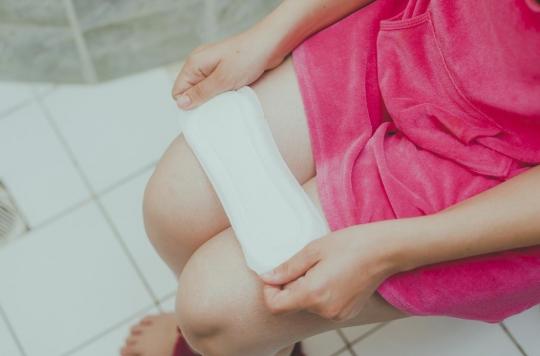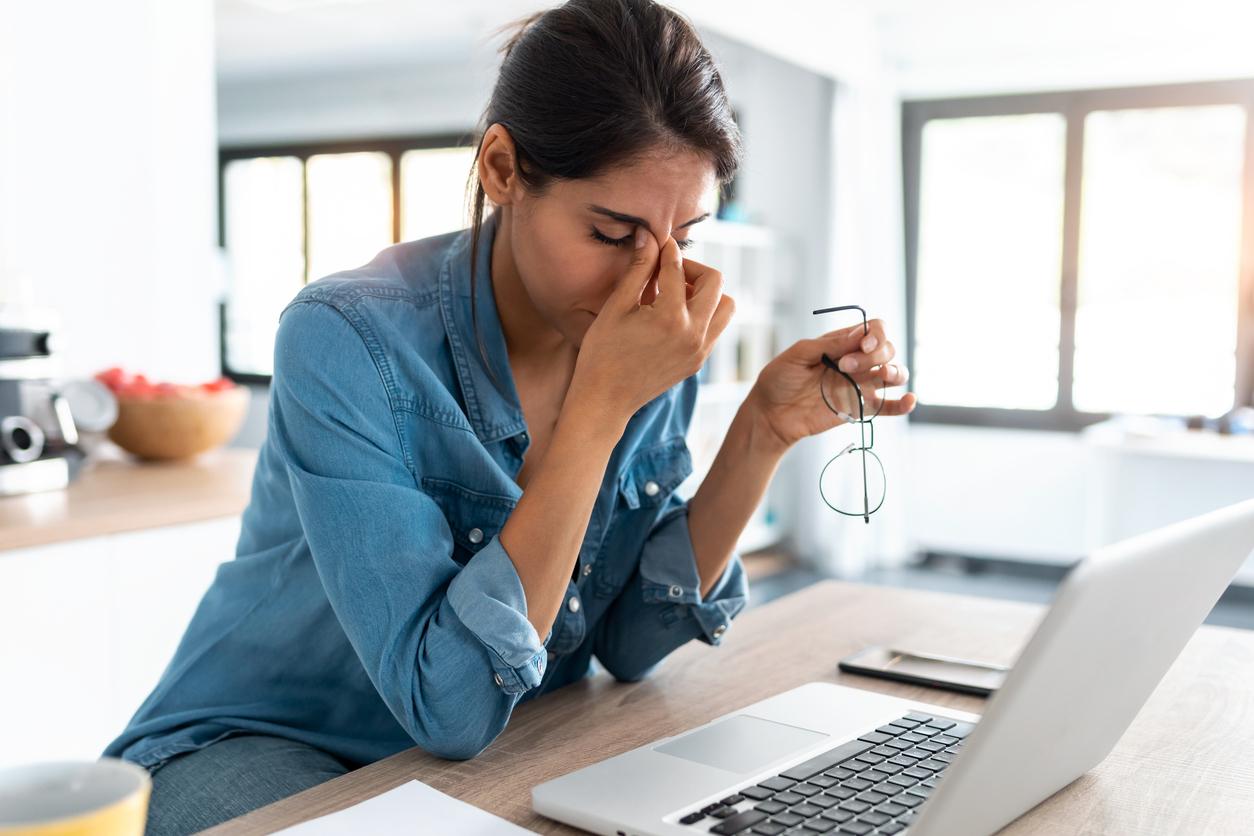The stress and sedentary lifestyle associated with confinement disrupt the hormonal clock of many women. In recent weeks, hundreds of Internet users have been reporting a delay or absence of rules.

- Some women would have noticed a disappearance of their periods since the start of confinement
- The explanation would be an effect of stress and sedentary lifestyle on hormonal functioning
Have you noticed a disturbance in your menstrual cycle for a few weeks? Don’t panic, you are not alone. This is one of the many harmful side effects of confinement on the body. While many Internet users have reported a disruption on social networks, experts explain the link between stress, sedentary lifestyle and hormonal clock.
“IYou should know that stress hormones are secreted by the same glands as those secreting the hormones on which menstruation depends (…) It is also known that in captivity, for example in the case of prisoners, we observe in women a disappearance of the periods even an alignment of their cycle, so that they have their periods together. It is a hormonal effect to make them fertile at the same time, in the sense that, in a very animal way, there is a kind of competition within the same household”explains gynecologist Maxime Marcelli, member of the Institute of Women’s Surgery, in Marseille at the site Actu.fr.
Laura Berlingoobstetrician-gynecologist, and host of the podcast Hello the Q, explains that in case of stress, the brain opens a new file. It controls the production of stress hormones, cortisol or adrenaline. If the stress lasts too long, the brain puts the production of sex hormones on hold. This is why a stressful event such as burnout or bereavement can disrupt a cycle. However, the period we are currently living in is obviously particularly anxiety-provoking.
If no scientific link has yet been proven between confinement and disruption, it is clear that on social networks, the testimonies of women going in this direction are multiplying. On Twitter, feminist director Ovide conducted a survey to try to determine the rate of women concerned. Out of 997 respondents, 23.7% of women mentioned irregular periods, while 16.3% reported that they had “completely disappeared”. “MHis periods were very late, I had to do a test because I was starting to freak out”, comments a user. “I got it last week three or four days late when they are normally very regular”“At the moment I am six days late, it had never happened to me”, worry other women.
Since the pandemic your rules are:
— Ovidie (@Ovidieofficiel) March 26, 2020
More painful periods in the absence of ibuprofen
Many Internet users also describe rules “much more painful than usual”, in particular because Ibuprofen, a drug widely used to relieve menstrual pain, is currently strongly discouraged by the health authorities. Indeed, non-steroidal anti-inflammatory drugs (NSAIDs) have not been sold over-the-counter in pharmacies since January 15 after a warning from the ANSM (National Agency for the Safety of Medicines) following their aggravating effects in infectious states.
In addition to the stress linked to the fear of falling ill, the concern for loved ones and the anxiety of the aftermath, a possible pregnancy can be behind an absence of periods. Indeed, this strange period can be synonymous with stronger sexual activity than usual, for those confined in a couple. What’s more, since confinement changes many habits, many women find themselves taking the pill at different times, which can lead to disruption. The lack of light could also play and disrupt the internal clock of women like a trip to the other side of the world with jet lag as a result.
“To return to a normal cycle, I have no miracle solution, but I can only advise hanging on to your pre-lockdown lifestyle, playing sports to eliminate stress, sleeping well. Regularizing your periods means regulating your life”explains Doctor Maxime Marcelli, who recalls that the regularity of the cycle depends on the sensitivity of each one.
Prioritize teleconsultation
For women who are worried despite everything, the gynecological consultation is unfortunately more complicated than usual, many practitioners having closed their practice for the time being. At the start of confinement, the FNCGM and the National Syndicate of Gynecologists and Obstetricians of France (Syngof) have notably indicated that “non-urgent consultations should be reconsidered”. They now recommend to “postpone simple examinations such as smears and routine consultations, and favor teleconsultation or telephone appointments for these”. Since mid-March, gynecologists have therefore been authorized to practice teleconsultation. “This allows us to support our patients and calm their concerns”explains Isabelle Fournier, president of the National Association of Liberal Midwives (ANSFL) at 20 minutes.
For women who absolutely need to be physically examined, face-to-face consultation remains possible in certain practices where barrier measures must be respected. The Syngof therefore advises gynecologists to “contact patients before their appointment to ensure that they do not have symptoms of Covid-19” and “to space out appointments so that patients do not meet in the office”. On the hygiene side,in addition to the recommendations for use (hydroalcoholic gel, soap, hand washing between each patient), you (and your staff) must wear gloves and masks”, insists the Syngof. At the end of each consultation, the examination room must be strictly disinfected with bactericidal and virucidal products.
Finally, if during the call preceding the consultation, a patient presents symptoms of Covid-19, the gynecologists redirect her to the Samu so that she is taken care of in the best possible conditions.
.
















